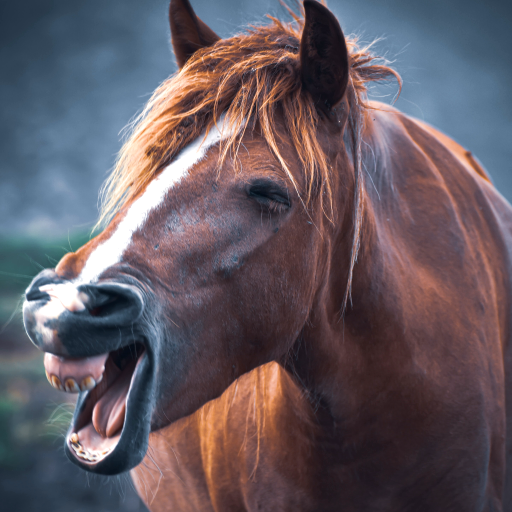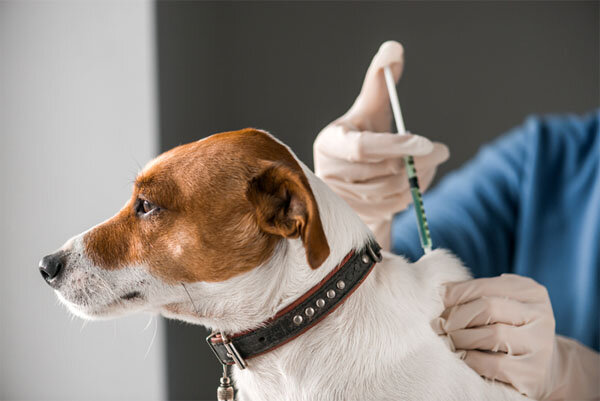Last Updated on October 24, 2023 by Fumipets
7 Common Horse Sounds and Their Meanings
Horses are majestic creatures with a rich language of sounds they use to communicate with their riders and fellow equines. Understanding these sounds is crucial for equestrians and horse enthusiasts alike. In this article, we’ll explore the most common horse sounds and decipher their meanings, shedding light on the equine world’s vocal expressions.
Whinnies and Neighs
- Sound: Whinnies and neighs are high-pitched vocalizations, often heard from a distance.
- Meaning: These sounds typically express excitement, alertness, or social interaction. A whinny might signal a horse’s recognition of a friend, while a loud neigh might signify a distress call or a call for attention.
Snorts and Blows
- Sound: Snorts are short bursts of air through the nostrils, while blows are deeper exhalations.
- Meaning: Snorts are often expressions of curiosity or alarm. Horses may snort when encountering something unfamiliar. Blows, on the other hand, are typically seen during physical exertion, like riding, and can indicate relaxation.
Nickers
- Sound: Nickers are soft, low, and gentle sounds.
- Meaning: Horses nicker to show affection or greeting. It’s a common sound when a horse recognizes its rider or a fellow horse in a friendly manner.
Pawing and Stomping
- Sound: These sounds are created by the horse striking the ground with a hoof.
- Meaning: Pawing often signifies impatience, while stomping can indicate annoyance or discomfort, such as dealing with flies. Pay attention to the context to understand the specific message.
Growls and Grumbles
- Sound: These low, guttural sounds are less common.
- Meaning: Growls and grumbles may signal discomfort, especially during feeding or if a horse feels unwell. It’s a good idea to investigate the source of their unease when you hear these sounds.
Common Horse Sounds
Horses are enjoyable to ride, like watching, and enjoy being around. They are available in a variety of sizes and colors. These lovely creatures are great athletes, diligent workers, and communicative with both their human friends and other animals. But why do they make that noise when they do? Let’s investigate this issue together! Here are seven common horse sounds along with their definitions.
The 7 Common Horse Sounds Are:
1. The Whinny or Neigh
Horses produce this sound, which is referred to as both a whinny and a neigh, for a variety of reasons. The main reason horses whinny or neigh is because they are happy to see a person or other horse, and it’s their way of saying “hello.” Additionally, when a horse is seeking to locate or attract the attention of another horse, they may whinny or neigh. When a horse leaves the companionship of another horse or a close human partner, they may produce this sounds to ease their separation anxiety.
2. The Nicker
A horse nicker functions as a summons to action. When it’s time to mate, a stallion will often nicker to attract a mare’s attention. Mares often nicker at their foals when they stray too far from the herd. In order to effectively watch over and safeguard the children, they use it to beckon them back to a safe distance. If they have formed a close relationship with their humans, stallions and mares may sometimes nicker at them.
3. The Snort
Horses are supposed to communicate effectively through snorting. A horse communicates its happiness and contentment to others around them by making this sounds. Other positive communication methods, like a swishing tail and a calm facial expression, are often used in conjunction with snoring. Snorting may occur when a horse has access to their preferred reward, during grooming, or when they welcome their infrequently encountered farm animal buddies.
4. The Squeal
Squealing from a horse is often not a positive omen. Squealing is often an indication of horse fighting. Females may shriek in response to male overtures. When seeing unfamiliar horses for the first time, some horses shriek as a warning. Before a fight between two horses starts, squeals are often heard. Squealing is, in general, a sign of hostility, to put it simply.
5. The Groan
It’s usual for horses to groan. It’s likely that the horse is in discomfort if the noise happens whether it’s being ridden, trained, or galloping and leaping. If a horse groans while they are getting ready for a ride, their saddle may be uncomfortable for one cause or another. On the other hand, when a horse is rolling in grass, sand, or mud, where they feel at ease and calm, they may moan. For horses kept in stables for an extended amount of time, groans may also be an indication of boredom.
6. The Sigh
Horses appear to sigh more often when they are near people. They like being handled and relaxed while sighing. When receiving a professional massage, people often sigh. Other situations when you could hear a horse sigh include grooming, sunning, and snuggling up to a close equine companion. The fact that a horse does not sigh, however, does not imply that they are not taking pleasure in their downtime.
7. The Scream
Horses kept in confinement don’t often hear screams. Wild horses, however, will scream freely when confronted by another horse or when they are really hurt. Domestic horses are more shielded from potential predators and environmental hazards. Additionally, opposing horses and horse packs are kept away from them. Therefore, they would often only scream if they were experiencing extreme inside agony as a result of an illness or riding accident.
Conclusion
Since horses are typically silent animals, any noise they make is nearly always an attempt to communicate. You may better understand how a horse works and how we as their human caregivers can assist them by learning about the many noises that horses produce and why they create them. What horse sound do you like, and why? Please share any of your ideas in the comments area.
5 FAQs About Horse Sounds
Do all horses sound the same when they neigh?
No, just like humans, each horse has its unique voice. The pitch and intensity of their whinnies can vary.
Why do horses make noise when they eat?
Horses are known to grumble while eating, especially if they’re not satisfied with their food or if they have dental issues.
Can you train a horse to respond to specific sounds?
Yes, with proper training, horses can learn to associate certain sounds or cues with specific actions or behaviors.
Are there silent horses?
While all horses make sounds, some may be quieter or more reserved in their vocalizations than others.
Can you tell a horse’s emotional state by its sounds?
Horses’ sounds are a valuable indicator of their emotional state. Paying attention to their vocalizations can help you understand their needs and feelings.
Understanding horse sounds is an essential skill for any horse owner or rider. These vocalizations offer valuable insights into a horse’s state of mind and well-being, enabling better care, communication, and a stronger bond between horse and human.


















